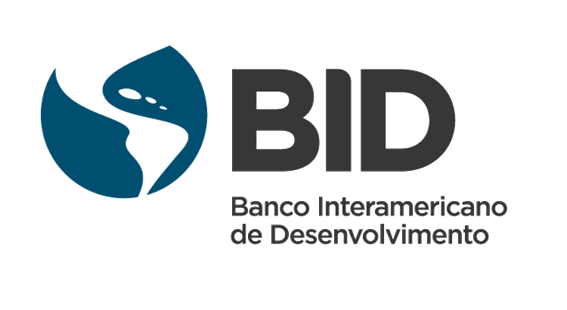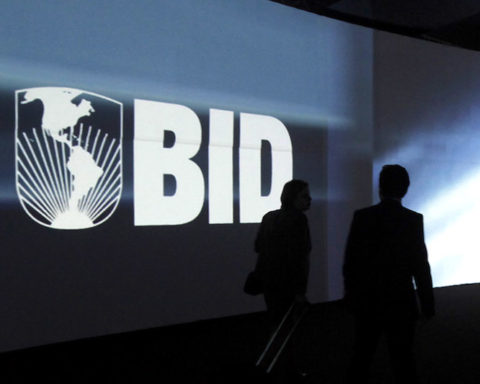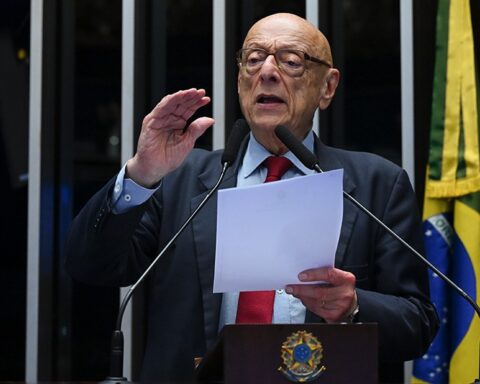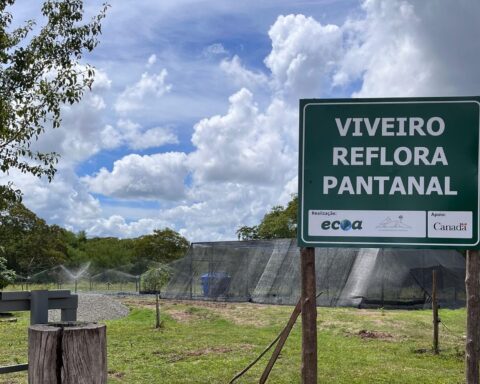A Ecoa acompanha instituições que financiam o desenvolvimento por entender que seus investimentos devem seguir parâmetros de proteção ambientais e sociais rígidos. Não devem financiar obras que degradam o ambiente e tragam problemas sociais como o deslocamento de populações, situações de ocorrência comum. As prioridades de monitoramento são o Banco Nacional de Desenvolvimento Econômico e Social (BNDES), o Banco Mundial e o Banco Interamericano de Desenvolvimento.
A Ecoa faz parte do IDB Working Group, que é um grupo internacional de organizações da sociedade civil que monitora as ações do BID. Nos últimos anos esse grupo tem firmado e enviado várias Cartas e posicionamentos à diretoria do Banco pedindo por mais transparência nas ações e maior interlocucção com a sociedade civil.
Strengthening the Joint Statement by the Multilateral Development Banks on Nature, People and Planet: Six Ways to Back Up Words with Action
An Open Letter to the Presidents of Asian Development Bank, African Development Bank, Asian Infrastructure Investment Bank, Caribbean Development Bank, European Bank for
Reconstruction and Development, European Investment Bank, Inter-American Development Bank, IDB Invest, Islamic Development Bank, and World Bank Group.
Dear Presidents:
We welcome the initiative that your institutions have taken in putting forward the Joint Statement by the Multilateral Development Banks on Nature, People and Planet. We are encouraged by
seeing a broader group of MDBs working together to promote outcomes that incorporate the role of nature in sustainable development. In particular, we are pleased to see commitments made across the pillars of Leadership, Fostering ‘nature positive’ investments, Fostering national and regional level synergies, Valuing nature to guide decision making, and Reporting, as these — if properly defined and implemented– are all needed areas of focus for MDB finance.
That noted, the intertwined climate and biodiversity crises require a more ambitious approach like that of the Paris Climate Agreement, in which parties ratchet up their commitments and the
goal is upward harmonization. Thus, we would propose that each of your institutions consider how you can improve on the joint statement, and work with your counterparts to produce a stronger statement by the time of COP 27. Specifically, we recommend you advance and operationalize your Joint Statement commitments as follows:
1. Leadership: Produce institutional strategic approaches to further mainstream biodiversity into analysis, assessments, advice, investments, and operations by end of 2022, and accompanying action plans by end-2023, through consultative processes that provide for stakeholder engagement, including marginalized groups (e.g.women, persons with disabilities, indigenous peoples, afro-descendants, LGBTQI+, youth).
2. Fostering ‘nature positive’ investments: While supporting economic activity to reverse the drivers of nature loss and promote its protection and regeneration, commit also to halt investments or budget support that directly or indirectly promote sectors such as fossil fuels, industrial livestock, or infrastructure that infringes on ecologically or culturally valued areas.
3. Fostering national and regional level synergies: Increase your support for cooperation among public and international organizations to work together across all sectors and at an accelerated pace, while taking care to avoid and eliminate private abuse of public goods.
4. Valuing nature to guide decision making: Use existing and new tools and metrics for public and private sector clients to better value, sustainably manage, protect, and restore nature and its natural assets to deliver sustainable development benefits, including their contribution to climate mitigation and adaptation, by applying the polluter pays principle and aligning incentives
with values.
5. Reporting and Transparency: Enhance accountability for and public reporting on your efforts and initiatives to mainstream biodiversity in your analyses, strategies, plans, programs,
metrics, and operations.
6. Financing: Progressively raise the percentage of concessional finance provided to public sector clients to achieve countries’ commitments to the international climate and biodiversity conventions in a sustained manner. The absence of a specific commitment in this area was a major disappointment of the Joint Statement.
We share here a draft improved text which we propose as a basis for your improved joint statement in 2022, ahead of COP 27, and we look forward to further opportunities for input on this critical area of multilateral finance.
AIDA- Interamerican Association for Environmental Defense
AMATE El Salvador
Asociación Ambiente y Sociedad
Asociación Interamericana para la Defensa del Ambiente (AIDA)
Bank Information Center
Center for International Environmental Law (CIEL)
Derecho Ambiente y Recursos Naturales (DAR)
Ecoa – Ecologia e Ação
Fundación CAUCE: Cultura Ambiental – Causa Ecologista
Fundación para el Desarrollo de Políticas Sustentables (Fundeps)
Inesc- Instituto de Estudos Socioeconômicos
International Accountability Project (IAP)
International Rivers
Mesa de Discapacidad y Derechos – Coordinadora Nacional de Derechos Humanos Perú
Plataforma Internacional contra la Impunidad (PICI)
Protección Internacional Mesoamérica
Sociedad y Discapacidad – SODIS
Wetlands International LAC/Fundación Humedales
Jeunes Volontaires pour l’Environnement (JVE) Niger







